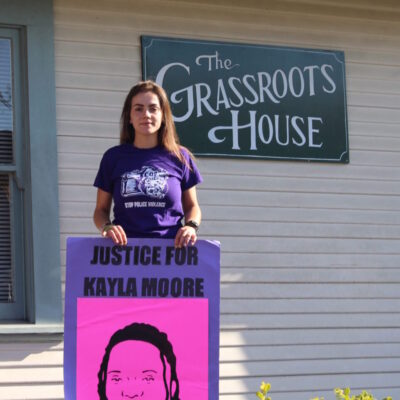Peyton Provenzano Humanities and Social Science
Community-Based Alternatives for Mental Health Crisis Response: Past, Present, & Imagined
The prevalence of mental health crises among individuals in the United States is steadily increasing, but state-funded resources are declining. The police are the only 24/hr emergency responders in most areas, which means that police are obligated to respond to mental health crisis situations. The US Department of Justice estimates that people with mental health disabilities are four times as likely to be killed in interactions with law enforcement compared to the general population. Seeking to minimize negative interactions with the carceral state, community-based organizations have begun to implement alternative models for mental health crisis (MHC) response that do not put the individual in need of supportive attention at risk of incarceration (i.e. they do not rely on police as first responders).
The aim of this research is to identify frameworks (past, present, and imagined) for community-based mental health crisis response and to compile a resource guide for organizations interested in this work, as well as for community members or individuals seeking alternatives to the police.
Message To Sponsor
Thank you to the Banatao fund for granting me the opportunity to explore alternatives to crisis response. My SURF experience has enabled me to develop a deeper understanding of community-based service provision. In light of my research experience, I have decided to pursue additional grants to actually implement community-based crisis response in the East Bay. Interviewing so many amazing people from throughout the Bay Area helped me build the confidence and the connections to engage in crisis response. I learned first-hand about the value of relying on my community for compassionate care, and the potential for community health to be improved through relationship building. Moreover, the ways in which mental health care, and community care more broadly, are entrenched in the history of city planning theory prompted my interest in pursuing grad school for City Planning. Thank you Banatao Fund for making this exploration possible!